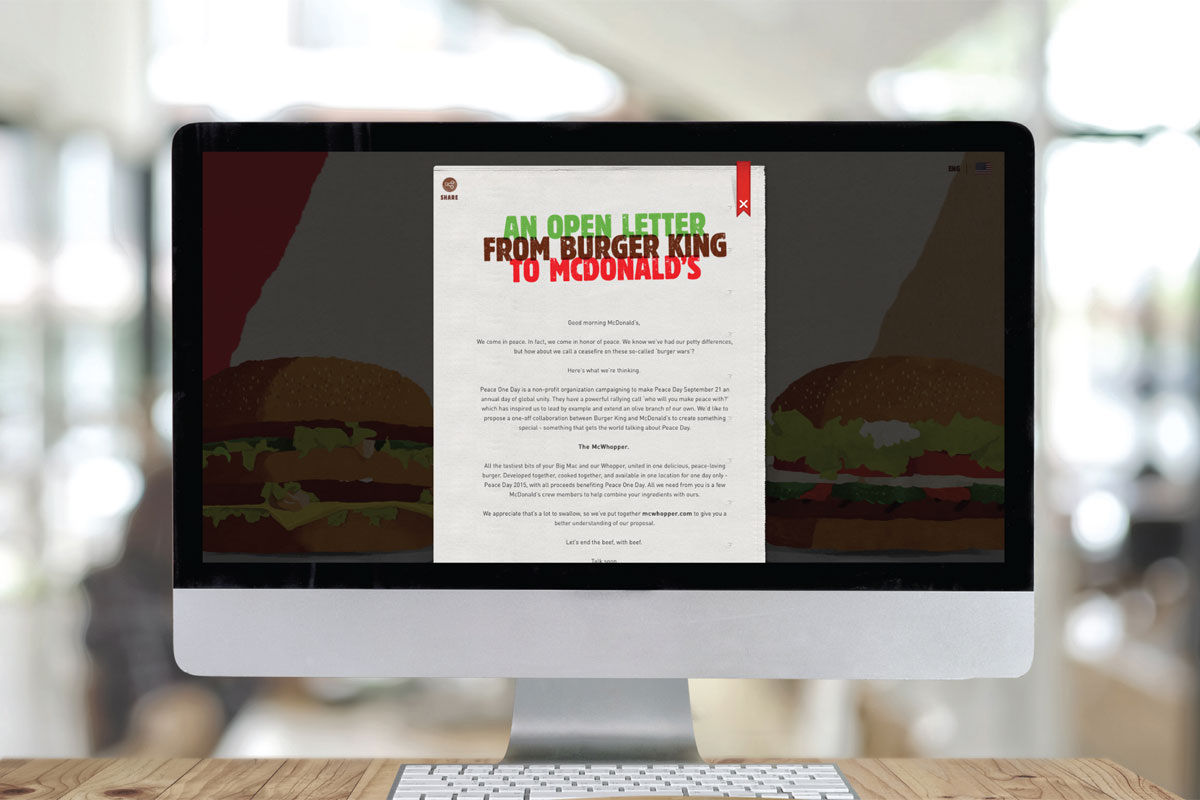In these days of rapid communications via social media, writing a letter seems almost quaint. But there’s nothing outmoded about the use of “open letters” by companies aimed at the public and competitors.
In recent years, a slew of quick-service and fast-casual restaurant chains have employed open letters for one purpose or another, from Panera Bread’s commitment to healthier ingredients to Freshii’s unsolicited suggestions for business combinations.
“We’ve seen an increasing number of clients ask about them,” says Debra Vilchis, chief operating officer of Fishman Public Relations, a Northbrook, Illinois–based firm that represents numerous restaurant entities.
Open letters traditionally are paid advertisements in publications, but they’re also popping up as online statements or in news releases. There are two basic types: one designed to explain a company policy or position to the public and the other to present a concept or an offer to another company.
While the former may help solve a problem, the actual effectiveness of the latter—other than garnering publicity—is questionable, says Dennis Lombardi, principal of Insight Dynamics, a Columbus, Ohio–based foodservice consultant.
“Certainly a company may get some buzz for its name and some recognition for its idea in an open letter, but I can’t think of too many times anything concrete has happened as of a result of this,” he says. “In fact, I can’t think of any.”
Restaurant operators initially used open letters to explain reasons for a change in their business models or to respond to bad reviews by critics. In spring 2015, however, Panera purchased newspaper space for an open letter from its founder and chairman, Ron Shaich, to discuss the company’s push for cleaner food.
Burger King found a different use for an open letter a few months later, playfully extending an olive branch to competitor McDonald’s in newspapers by suggesting they combine forces to develop a McWhopper sandwich for Peace Day. McDonald’s chief executive Steve Easterbrook responded with his own open letter online suggesting that the companies look beyond the simple burger wars to promote real world peace.
Fishman’s Vilchis says operators must be aware that there is the potential for negative blowback from the public or a competitor.One open letter she believes was appropriate addressed a health-related issue that affected a restaurant client. “There were facts being misconstrued and the site was suffering,” Vilchis says. The open letter was placed in the local paper to spell out the facts. “When you’ve tried everything else, maybe a bold step would help. It did.”
Freshii founder and chief executive Matthew Corrin is a serial user of open letters. In an 2015 missive to McDonald’s, he not only suggested a business deal to cobrand one of McDonald’s existing units with Freshii, but he also denigrated the burger giant’s then-recently announced turnaround plan as well as Easterbrook’s leadership.
Since then, Corrin has penned open letters to frozen-yogurt and juice-bar operators “struggling to stay relevant”—resulting in a $10 million lawsuit for denigrating the “froyo” trademark—and several letters proposing Subway convert some units to Freshii.
Freshii declined to comment on its use of open letters, but it is aware of the chance it is taking. Listed among the risk factors in the company’s prospectus for last year’s public stock offering is “the public’s reaction to our press releases [and] open letters.”
A company that has used open letters as an arrow in its marketing quiver also can be a target of one. That’s what happened this year when Panera announced in a news release that it would petition federal regulators to truly define eggs. At the time, one of its executives stated that no limited-service restaurant serves over-easy eggs.
Au contraire, replied Farmer Boys. Using its scarecrow mascot as the “author” of an open letter, the Riverside, California–based operation pointed out that its restaurants have cooked eggs to order for years, and, unlike Panera, use only cage-free eggs.
“Our response was not particularly pointed, but they opened the door,” says Larry Rusinko, chief marketing offer. “We wanted to do it in a fun way. Panera may be doing some posturing, but what they are trying to do with food is something we support.”
Chicago’s DMK Burger Bar also used an inanimate object—one of its burgers—in an open letter last year offering to become Chipotle Mexican Grill’s new chief executive. The letter was largely an effort to show that DMK admires and emulates Chipotle, including in its sourcing of fresh ingredients and environmental stewardship, says partner and James Beard–nominated chef Michael Kornick. “We thought it was fun,” he says. “As we try to be leaders in the grass-fed beef business and focus on high-quality ingredients, we are very in sync with what [Chipotle] has done.”
While most open letters focus on business, Tom Colicchio, whose restaurant empire includes fast casual ’Wichcraft, took a more politically active role in penning a letter last year aimed at male chefs and other men in the restaurant business who demean women.
Posted on Medium, an online publishing forum, Colicchio—sometimes using blunt language—stated it’s time for men in the industry to say to one another “enough.” He admits in the letter he isn’t perfect, but says any form of sexual harassment must stop.
The response has been largely positive. “I’m seeing the response from younger chefs, the younger generation, who want a different workplace than we had,” he says. “This isn’t just an issue in restaurants, but it’s with our culture and society.”












